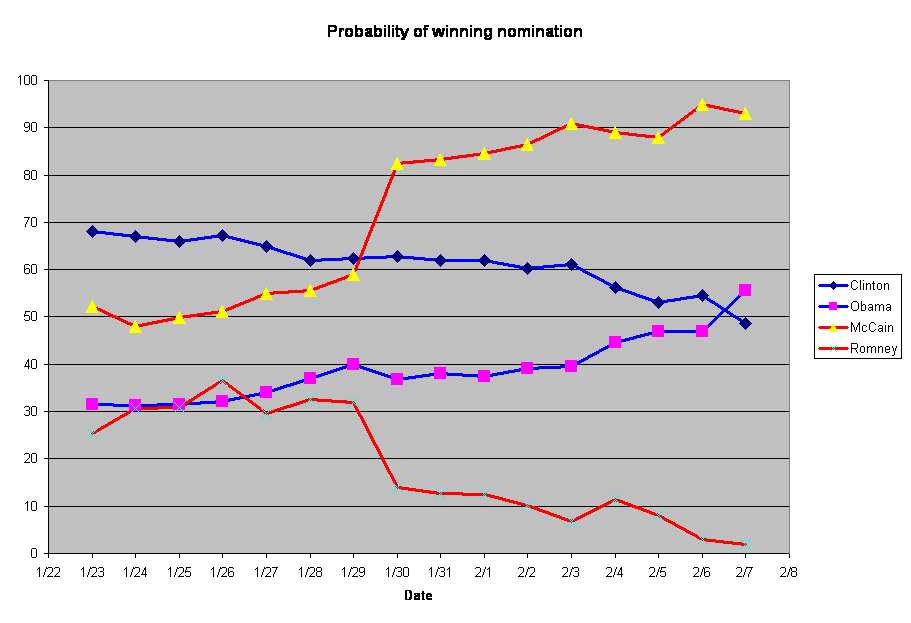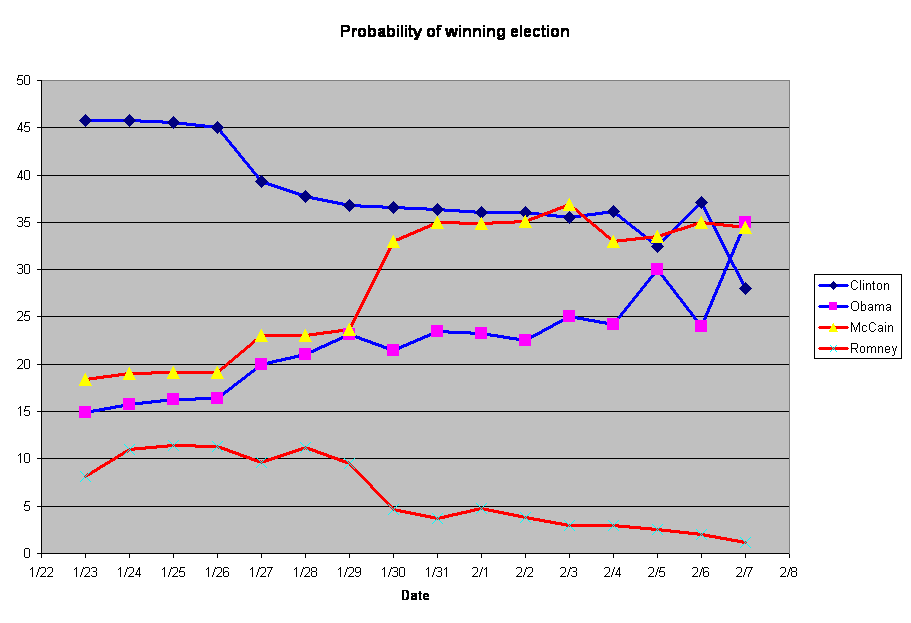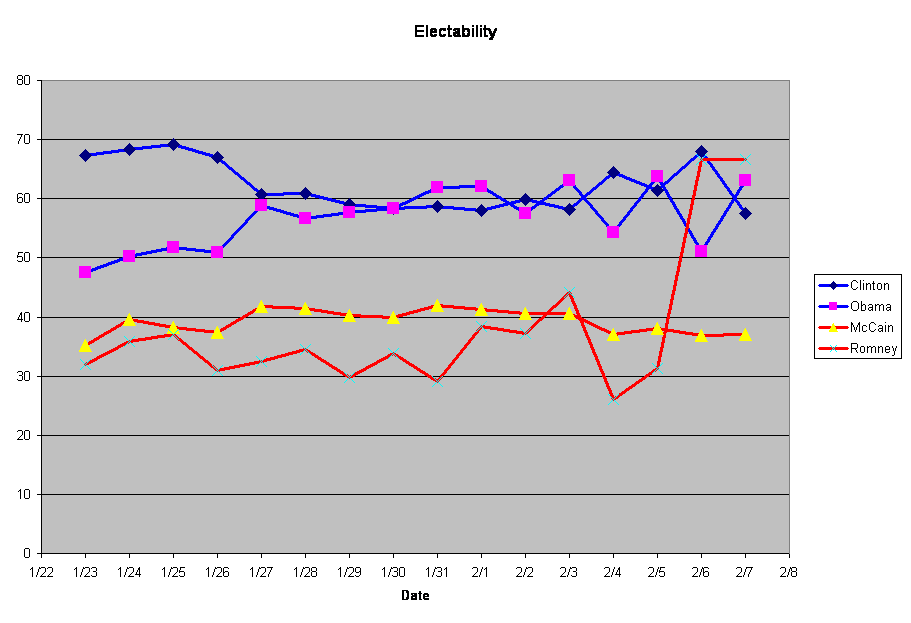There seems to be more and more talk about which Presidential candidate is most “electable,” at least on the Democratic side. As I noted in an earlier post, the political futures market gives a way to assess electability. Here are some graphs showing what the market has thought about the electabilities of the two leading candidates in each party over the past few weeks.
First, the probabilities of winning the party nomination:

(Click on the images to get better-looking versions.)
Next the probabilities of winning the Presidency:

The ratio of these two is the electability (probability of a candidate’s winning the election given that he or she gets the nomination):

By the way, I think that the big jump in Romney’s electability in the last couple of days is probably just a fluctuation. The other big features you can see here are South Carolina on the Democratic side, Florida on the Republican side, and the current uncertainty in interpreting Super Tuesday on the Democratic side. Perhaps the most important thing, from the point of view of voters concerned about electability, is that Clinton and Obama are consistently very close to each other.
In the end, what you make of these results is up to you. Some people seem to attribute to the futures markets an almost magical “wisdom-of-crowds-style” ability to discern the Truth. It’s certainly possible to exaggerate that sort of thing, but at the very least what we’re looking at here is the average view of a community of people who pay a lot of attention to this subject and who are willing to put money behind their beliefs. If the numbers here strongly disagree with what you think about the candidates’ electabilities, then I have two questions for you:
1. Are you confident that you know more than this group of people?
2. If so, why don’t you bet on it?
After all, if you think that the probabilities shown here are wrong, then you can place bets on the futures markets (specifically, Intrade, which is where the above data comes from) where the odds are weighted in your favor.


